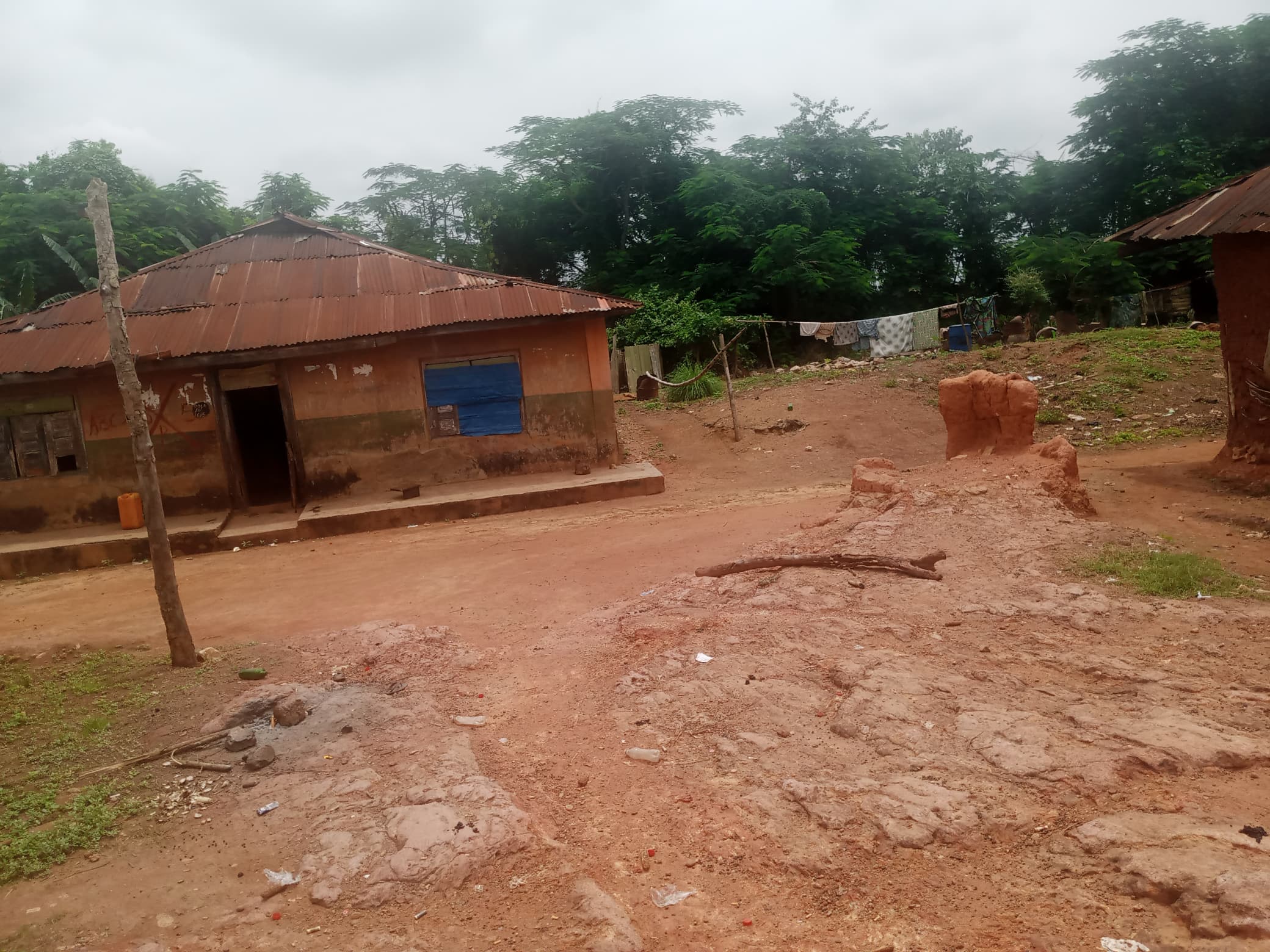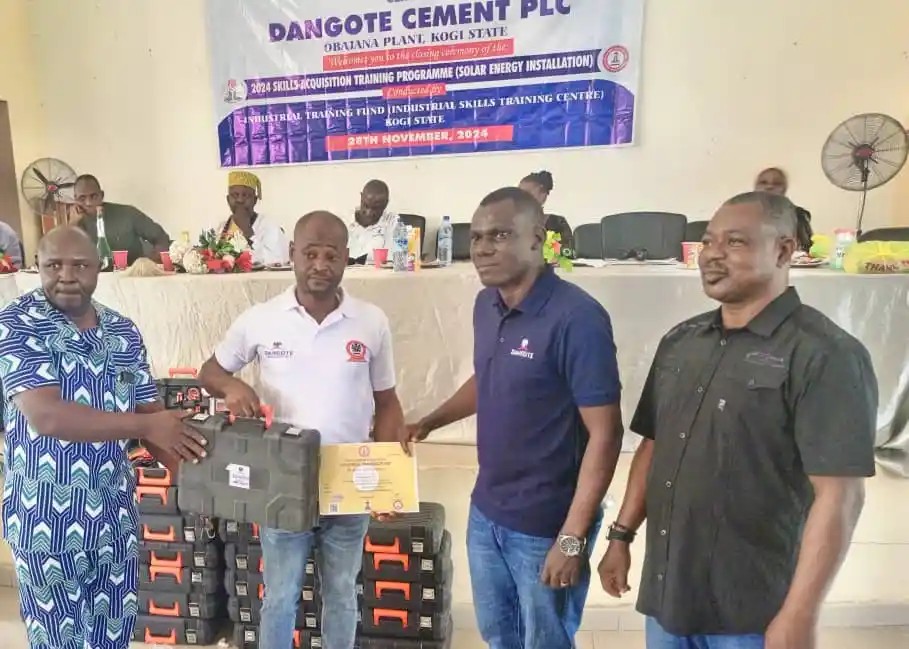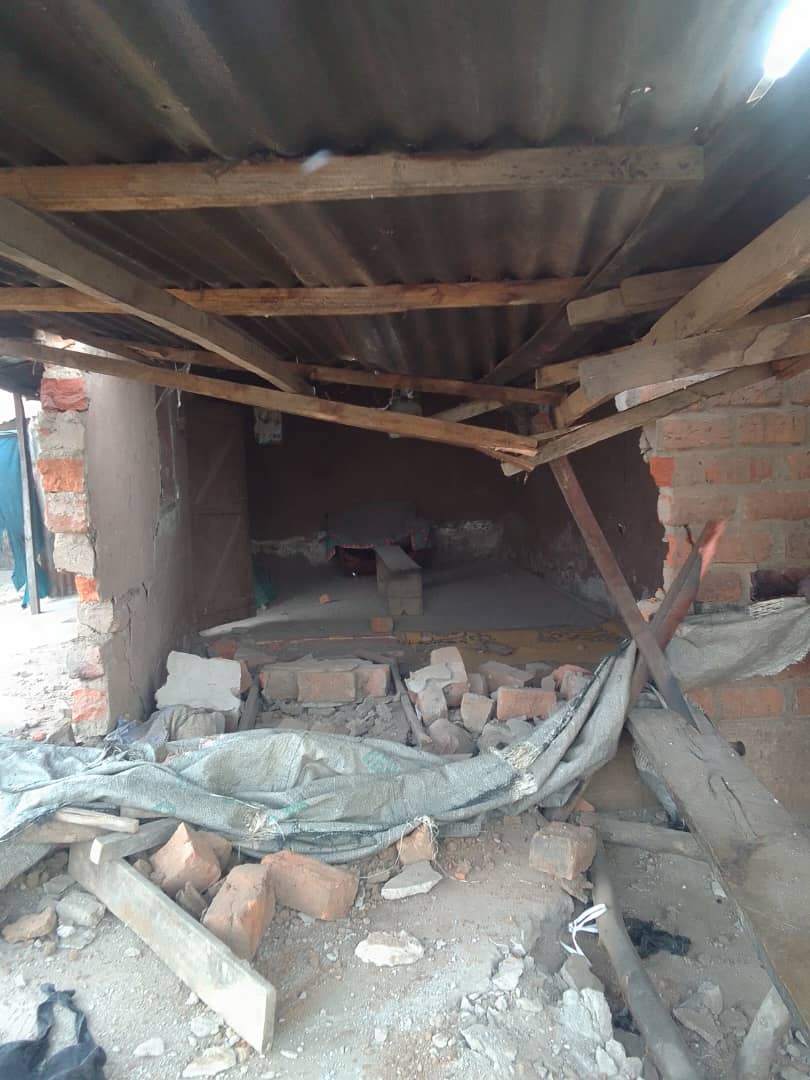
It was a sunny day some months ago, a pregnant Kehinde Olatubosun started getting uncomfortable. She was in pain and could neither stand nor sit as she began labour prematurely.
In Tonawo, the community she resides in Obafemi Owode Local Government Area (LGA), Ogun State, there is no Primary Healthcare Centre (PHC) that should serve as the first point of access to healthcare for residents.
Mrs Olatunbosun and her husband know this and had prepared for her to give birth at a health centre in the city, some kilometres away from their residents.
However, she was not due for birth when the labour came that day. It was too dangerous to embark on the journey to the city so she tried to settle for the method of birth used by the majority of women in the community –house birth by unskilled midwives.
But none of the women were also around.“When I registered for ante-natal care in the city, I was told I wouldn’t be delivering any time sooner, but I was amazed and scared that afternoon,” she said, recalling the traumatic event.
“In this community, we give birth to our children at home because there is no hospital here, both public and private, but if we want to access one, we go into the city.
Those who help in child delivery here are also women like us, they are not experts in the field, they only work with ideas,” Mr Olatubosun added.
The husband, Mr Olatubosun, therefore, contacted a nurse to come help his wife with the childbirth at home. “(She) later helped me deliver the baby safely,” she said.
In her 18 years of living in this community, Aminat Abiodun, a mother of seven, said all the women she knows including herself have birthed their children at home.
“We also cut the umbilical cord ourselves,” she said.Sunday Senu, a community leader, said the challenge of the absence of basic amenities in this community goes beyond health centres.
Access to drinkable water and quality education are also a challenge, he said.“We suffer a lot here. Our kids lack access to basic amenities. Imagine struggling to give birth to these children and making them useless, it’s not our joy.
They can’t go to school, drink good water or get adequate health care as at when due,” he said.
Local governments failure These basic amenities are the responsibility of the local government, which is the third tier of government in Nigeria.
The first and second tier of government are the federal and state governments, respectively.The fourth schedule of the constitution listed the responsibilities of the local governments to include the provision of “pre-school, primary and adult education, public health (including primary care and health protection), town and regional planning, roads and transport, refuse collection and disposal, among others.
However, the hijacking of local government administration, funds and allocation by state government has made it impossible for them to meet their responsibilities, the President of Nigeria Union of Local Government Employees, (NULGE), Akeem Ambali, said.Mr Ambali said the stifling of the local government administration has made it impossible for them to fulfil their constitutional duties and has inadvertently contributed to the “high rate of poverty, frustration, insecurity, and joblessness across the country”.
As a result, in over 20 communities in Tonawo and over 1,204 towns that make up the Obafemi Owode LGA, access to basic amenities is not basic.
They’re a luxury enjoyed only by a few who stay in the local government headquarters. For instance, in Agbagu village, sitting just behind the state-owned Moshood Abiola Polytechnic, (MAPOLY), in the same Obafemi Owode LGA, residents rely solely on murky, dirty and coloured water for cooking and drinking, risking their health.
Oluyemi Bamgbose said the river has been their only source of water supply since she moved to the village after her marriage to the community leader. “I’ve been drinking this water since 27 November 1977 when I came here,” she said.
“It’s our only source of water, our life saver.” Meanwhile, Obafemi Owode LGA is one of the seven LGAs hit with a Cholera outbreak this year, with at least one death and more than nine confirmed cases as of June 2024.

Cholera is a disease caused mostly by contaminated food and water.History of ‘Hijack’Across Nigeria, rural communities in the 774 LGAs lack basic amenities as development projects are always tilted towards LGAs that make up the capitals of the 36 states.
This became possible after state governors undermined the autonomy of the local governments under their jurisdictions, lording over them and diverting the funds allocated to each of them for over 26 years.
Over the last 16 years, state governors have hijacked over N23.14 trillion in federal allocations meant for local government areas.
Every month, the three tiers of government receive allocations from the federation account according to a sharing formula drawn up by the Revenue Mobilisation Allocation and Fiscal Commission (RMAFC).

While the federal government keeps 52.68 per cent of federal revenue, the 36 states and the Federal Capital Territory share 26.72 per cent, leaving 20.60 per cent to be shared amongst the 774 LGAs.
Nine oil-producing states also receive 13 per cent of Nigeria’s federal revenue, namely: Delta, Akwa-Ibom, Bayelsa, Rivers, Edo, Ondo, Imo, Lagos and Abia.
An analysis by the Centre for Journalism Innovation and Development (CJID) showed that between 2007 and 2023, state governments received N39.01tr in federal allocations.
Yet, the governors also managed over 23.14 trillion meant for the local government within the period.Allocations for selected LGAsA review of federal allocations for some LGAs in Ogun state in the first quarter of 2024 revealed that they received around a billion naira each in the four months.
For instance, Abeokuta North received ₦979.91 million during the period. Similarly, Obafemi Owode got ₦1.03 billion, while Egbado North was allocated ₦979.97 million.
Although these LGAs received an average of over ₦300 million monthly, the local government administrations have been unable to wholly utilise these funds for developmental projects in their domains because they do not have access to the funds as the accounts are controlled by the state governments.
The governor’s hijacking of local government funds exacerbates the dire situation fo rural communities, making it nearly impossible for these grassroots administrations to address pressing needs like healthcare, infrastructure, and education. Inde Margaret, a former local government chairperson for Obanliku LGA, Cross River State, noted that autonomy for the level of government would help address grassroots issues and fast-track development in rural communities.
Speaking on her experience, Ms Margaret said the current state of local government administration reeks of neglect, with deteriorating health centres, poorly structured markets, lack of potable water, and communities plunged into darkness due to inadequate infrastructure.
Autonomy at lastThe federal government has made multiple attempts to ensure that the local government administration is freed from the clutches of the state governments.
But the governors have resisted all attempts to make the local governments autonomous and have them manage their allocations independently.In 2020, Former President Muhammadu Buhari signed an executive order granting financial autonomy to the local government but it failed as the state governors opposed the move.In May 2024, the Attorney-General of the Federation, Lateef Fagbemi, filed a suit at the Supreme Court to strengthen the autonomy of the local government areas as guaranteed by the Nigerian constitution.
The suit sought to prevent state governors from unilaterally dissolving democratically elected local government councils and establishing caretaker committees, noting it is an action that violates constitutional provisions.
Delivering its judgement in July, the Supreme Court affirmed the financial autonomy of all the 774 local government areas in a unanimous judgement by its seven-member panel.
A member of the panel, Emmanuel Agim, who delivered the court’s lead judgement, held that the local governments across the country should receive their allocations directly from the Accountant-General of the Federation.
He ruled that it is illegal and unconstitutional for governors to receive and withhold funds allocated to local government areas (LGAs) in their states.
Governors resist attempt at LGA autonomy despite this landmark ruling, however, the state governors are already devising other means of handling the local government funds. Between July when the ruling was made and October, 18 states quickly held local government elections.
But these elections, observers have noted is far from being credible, as the governor’s preferred party in all states cleared the elections organised by the State’s Independent Electoral Commission (SIEC).
Opposition parties in all of these states have rejected the outcome and described it as fraudulent.In its report on the elections, observer group Yiaga Africa noted that the elections failed the integrity test.Meanwhile, other governors have made plans beyond the elections. In October, Anambra State Governor, Charles Soludo, passed a local government to compel local government areas to remit a portion of their federal allocations into a consolidated account controlled by the state.
Expert speakAbdul-Lateef Ahmed, a policy analyst, believes decentralising governance by empowering the local government would transform the fate of residents of rural communities.He said the ability of the local government administration to plan and execute policies tailored to their constituents’ needs, without interference from state governments would ensure needed developments in the communities.
“States like Lagos and Kano, decentralised initiatives could boost faster infrastructural development in underserved areas,” he said.He said the move would benefit investments, boost small and medium enterprises (SMEs), and create jobs.
He added that the autonomy of local government would promote civic engagement, transparency, and accountability. He cautioned, however, that autonomy without capacity building could lead to inefficiency, as many local government administrators lack the necessary expertise to manage resources effectively.
This report was produced as part of the Liberalist Centre’s Journalism for Liberty Fellowship project with funding support from Atlas Network
Do you want to share a story with us? Do you want to advertise with us? Do you need publicity for a product, service, or event? Contact us on WhatsApp +2348183319097 Email: platformtimes@gmail.com
We are committed to impactful investigative journalism for human interest and social justice. Your donation will help us tell more stories. Kindly donate any amount HERE









